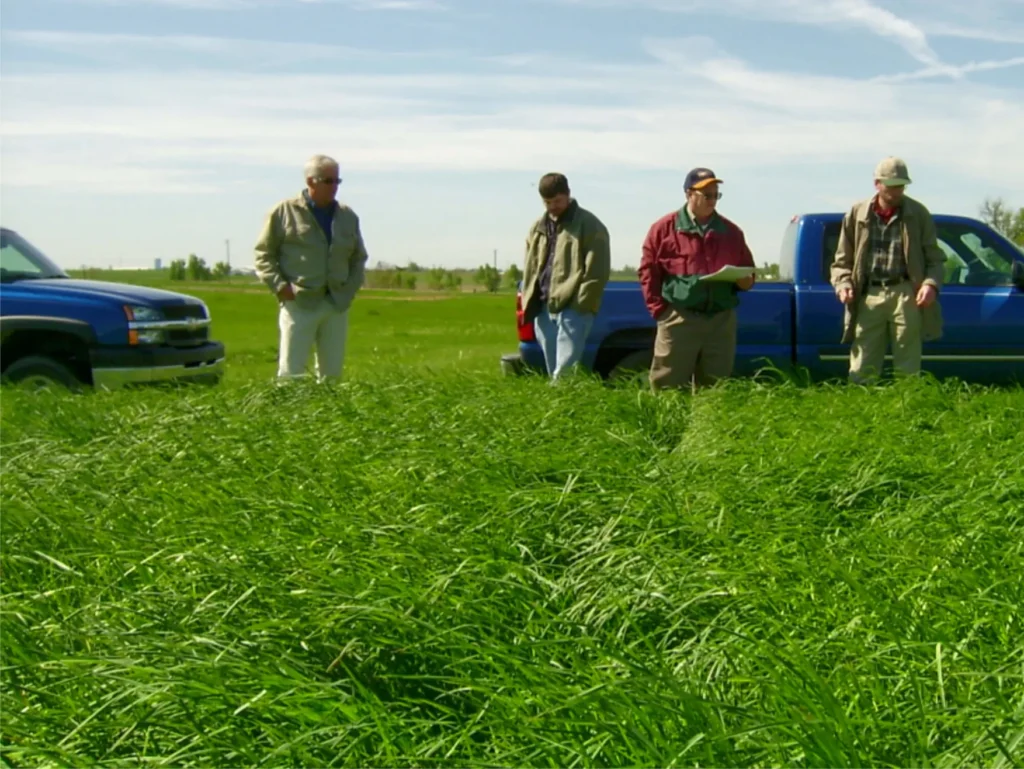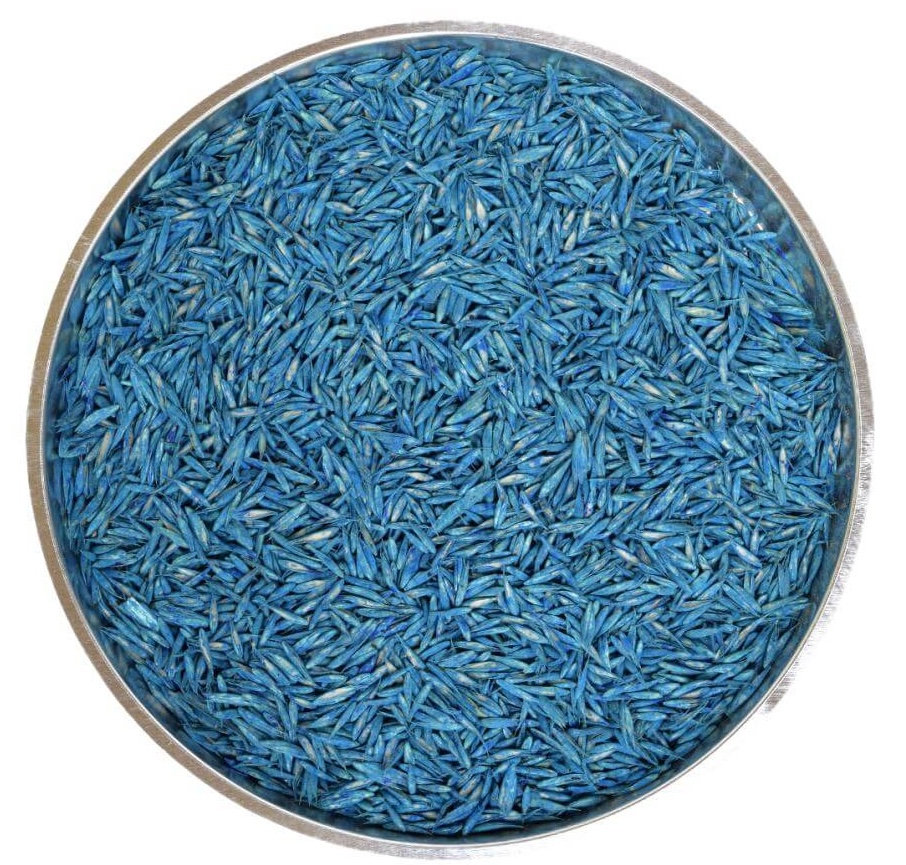The University of Tennessee Research Foundation is proud to work with innovative researchers like Gary Bates, professor and Department Head of the Department of Plant Sciences at UT Knoxville.

When I look over my career, that’s what I enjoy – helping people succeed,” said Bates.

Bates began his career at UT as an Extension Forage Specialist in 1993. Before he assumed his current role in 2022, he served as the UT Forage Testing Laboratory supervisor and the Director of the UT Beef and Forage Center.
All I wanted to do was raise cattle, but then I got interested in research,” said Bates. “Then, it was a series of opportunities and stepping through doors – next thing you know, it’s 35 years later, and here I am.”
His research focuses on forage species selection and sustainable forage production, among other areas. For the past few years, his work focused on orchardgrass, a high-quality, cool-season forage grass.

When Tennessee producers plant orchardgrass for livestock grazing, they typically expect to get three or four years before the grass dies, whether due to harsh summers, droughts, or overgrazing. To support producers, the late Bob Conger, former UTK-UTIA distinguished professor, developed a more “persistent” orchardgrass cultivar, appropriately named Persist. It offered higher yields, increased longevity, and decreased costs, among other benefits.
UTRF licensed the variety to a worldwide wholesale supplier of turfgrass and forage seeds. But when Conger retired in the early 2000s, Bates realized no other faculty was picking up the torch to continue developing Persist.
I do not claim to be a plant breeder, but it was a shame that nobody was trying to push this variety further,” said Bates. “Since Persist was available for us, we planted and put extreme grazing pressure on it, selecting plants that would tolerate even more pressure. It probably took us 10 to 12 years to develop Persist II.”
The Persist II variety offers more persistence, disease resistance, and vigor than its popular predecessor, Persist.
Persist II is a high-quality forage that you don’t have to replant as often. Animals perform well on Persist II; producers can get an extra two or four years. Planting every five or six years, instead of three to four, becomes more economical. We’re excited about where it’s going,” said Bates.

Bates is incredibly grateful for his partnership with UTRF in his work with Persist II and projects out of the Department of Plant Sciences.
UTRF is a fantastic partner,” said Bates. “It’s encouraging to our faculty to know they’ve got somebody to partner with them who can allow them to advance their work and continue to be successful.”
UTRF also licensed Persist II to the same licensee. Bates is thankful for this partnership and for the ability to offer high-yielding orchardgrass to regional producers.
This partnership with the licensee and Gary Bates is exactly the kind of relationship UTRF enjoys – advancing UT innovation into the market where it can directly impact and benefit society,” said Kusum Rathore, Vice President of the UTRF Multi Campus Office. “I look forward to continuing to work with Bates in his work and through his position as Department Head in the Department of Plant Sciences.”
Bates’ primary motivation is to help people around him. As an Extension Forage Specialist, he empowered producers around Tennessee to solve problems and improve their profitability and production practices. He enjoyed improving programs and supporting research and information-sharing at the UT Beef and Forage Center.
Now, the people I serve are the people in the Department. I enjoy helping our faculty members and graduate students succeed,” said Bates. “Good stuff happens when you get together a group of engaged, creative people. I’m excited about the future of the Department of Plant Sciences and UTIA, and I’m sure UTRF is going to be part of that.”